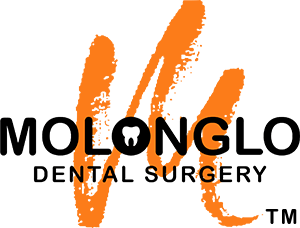Dental emergencies don’t play by the rules, but you can! This guide provides the essential steps to navigate dental crises with confidence.
Emergencies can catch us off guard, especially when it comes to dental issues. In this guide, we’ll walk you through the crucial steps to take during a dental emergency, ensuring you’re well-prepared for unexpected situations. Remember, staying calm is key.
What Constitutes a Dental Emergency?
While routine dental check-ups and good oral hygiene are preventive measures, accidents happen. Dental emergencies include situations like broken teeth, severe pain, loose teeth, bleeding, and more. Quick action is essential to address these issues effectively.
Types of Dental Emergencies
Understanding the nature of dental emergencies is vital. Categories include chipped or broken teeth, severe toothaches, excess bleeding, knocked-out teeth, and lost fillings or crowns. Each requires specific attention and prompt care.
Chipped or Broken Tooth
While immediate professional attention is crucial for a broken tooth, you can take some preliminary steps to safeguard your oral health:
For a Broken Tooth:
- Rinse your mouth with warm water to clean the area.
- Apply gentle pressure to control bleeding and use a cold compress to minimise swelling.
- If you locate the broken piece, preserve it in wet gauze and bring it to the dentist.
For a Chipped Tooth:
- Rinse your mouth with warm water and apply cold compresses externally to reduce swelling.
- Over-the-counter pain relievers can be used, following recommended dosages.
- Consider applying clove oil, containing eugenol, for numbing and anti-inflammatory effects.
Severe Toothaches
While antibiotics and over-the-counter pain relievers provide temporary relief for toothaches, it’s crucial to address the root cause. Antibiotics may resolve infection temporarily, but without treating the underlying issue, the problem may recur.
In the interim, while awaiting professional dental care, consider using over-the-counter pain relievers such as acetaminophen and ibuprofen to alleviate pain and tenderness. Remember, these measures are temporary, emphasizing the importance of seeking comprehensive dental treatment for a lasting solution.
Excess Bleeding
Bleeding, whether from trauma or dental procedures, should be controlled with gauze and pressure. Seek professional help promptly.
Knocked Out Tooth
Trauma to the mouth can result in knocked-out teeth. Follow these steps:
- Find the tooth and handle it by the crown, avoiding the root.
- Rinse it with milk or water (avoid soap or chemicals).
- Ideally, gently reposition it in the socket. If not, keep it moist in your mouth or in milk.
- Seek a dentist within 30 minutes to increase chances of successful reattachment.
Lost Filling or Crown
A lost filling or crown can expose sensitive tissue, causing discomfort. Temporarily alleviate sensitivity by avoiding hot and cold items. Consider using a chewing gum to cover the area or reseat the crown before seeing your dentist for a proper fix.
Top Five Mistakes to Avoid
In the midst of a dental emergency, it’s crucial to avoid common pitfalls. Here are the top five mistakes to steer clear of:
Don’t Delay Seeking Professional Help
The first step in a dental emergency is calling your dentist for a same-day appointment. Immediate care can save your tooth and prevent complications.
Do Not Depend Solely On Self-Treatment for Pain
While over-the-counter pain relievers can provide temporary relief, they don’t address the underlying issue. Rely on a dentist to treat the source of pain effectively.
Do Not Ignore Any Dental Emergencies
Not all dental emergencies are obvious. Any condition causing severe pain, discomfort, and bleeding qualifies. Don’t underestimate the urgency of your situation.
Skip the Emergency Room (In Most Cases)
Emergency rooms may not have dental specialists. Contact your emergency dentist for dental issues, reserving the ER for life-threatening situations.
Do Not Panic
Dental emergencies don’t follow a schedule. Stay prepared by familiarising yourself with these tips. Contact your emergency dentist immediately if needed.
In conclusion, stay calm. Dental emergencies require swift and informed action. With the right knowledge and a cool head, you can navigate these situations effectively, preserving your oral health. Always have an emergency dentist on call, and don’t hesitate to seek professional help when needed.
A dental emergency usually strikes when you least expect it. Knowing the right Child-Friendly, Afterhours Canberra Emergency Dentist to call will prevent a bad situation from getting worse.
Our Canberra dentist at Molonglo Dental Surgery is fully equipped to handle dental emergencies involving children of all ages. If your child is experiencing any form of trauma or injury to their teeth, contact Molonglo Dental Surgery at 02 6287 1222.



